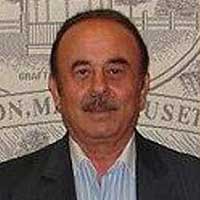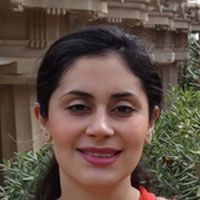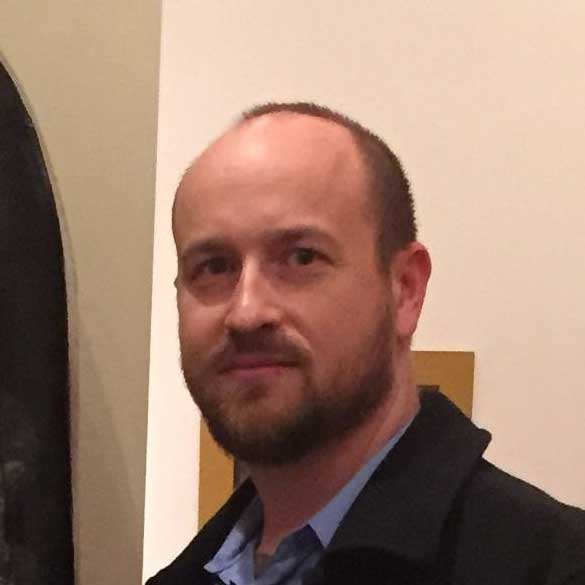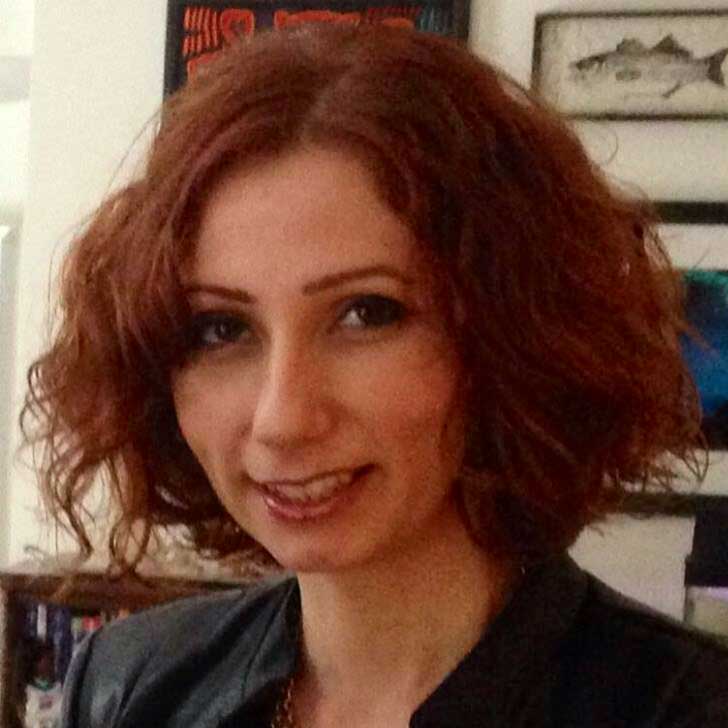AAI Talent
At AAI we are committed to transparent, disciplined and creative supervision for the organization. This begins with our Board of Directors, which provides not only legal oversight of the organization, but also sets the artistic vision, raises and manages the organization’s capital and responds to the guidance given by our Board of Advisors and the academic and artistic communities we serve. Each member of the Board of Directors is chosen based on their ability to contribute meaningfully to the organization, on individual skills and knowledge, and on the connections the Board member brings to the Assyrian art world.
BOARD OF DIRECTORS
Nora Betyousef Lacey
Founder
Nora is an experienced leader, a notable groundbreaker, who established Cell Marque Corporation. For 20 years, she led her biotechnology company into global acclaim, becoming one of America’s great success stories. It was recently acquired and now is a division of Merck Pharmaceutical. With a lifelong passion for Assyrian traditional arts, Nora strongly believes that the arts are a powerful bridge connecting the past to the present. Having a clear vision and time, she was inspired to establish AAI, after receiving enormous encouragement from exceptional individuals and scholars, who are now serving on AAI’s Board of Directors and Advisors. Nora commits 100% of her time increasing awareness of the vast Assyrian cultural legacy, to create understanding and appreciation for the world’s oldest civilization and its relevance for today. She promotes up and coming Assyrian artists and produces an innovative platform to showcase talent. Nora is married to Dr. Michael Lacey and has 2 daughters, Sarah and Roshel Aghassi.
Patricia (Pat) Splinter
Chairman of the Board of Directors
Pat is a powerful Assyrian, a successful Silicon Valley executive, and a Venture Capitalist; she brings a wealth of experience and passion to her role with AAI. Pat is well known in technology circles from her many years at Intel and other leading tech companies. Her current role, as a venture capitalist, focuses extensively on Energy Innovation and China, where she oversees a team in Beijing and serves on the board of several innovative start-ups. Pat is also known for her philanthropic and board-leadership contributions to numerous non-profit organizations in healthcare, education and the arts. When not working in the Valley or travelling extensively to advise companies and mentor entrepreneurs, Pat and her husband Mike Splinter retreat to their home, a working vineyard in Granite Bay, where they frequently entertain four adult children and three grandchildren.
Sarah Aghassi, Esq.
Legal Counsel
Sarah, an accomplished and successful Assyrian attorney, is a lifelong lover of the arts. Raised in a family of artists, which have instilled in her the love of art and beauty in the world around her, she is enthusiastic to bring her passion for arts, coupled with her legal expertise to the Board of Directors. Sarah is a master chef and also enjoys preparing Assyrian cuisine and fine culinary art. Sarah works as a corporate counsel for one of the world’s largest pharmaceutical and biomedical conglomerates, Merck KGaA, Darmstadt, Germany, focused on improving healthcare globally. She is instrumental in navigating AAI through the legal landscape during this exciting time.
BOARD OF ADVISORS
Elias Hanna
Mr. Elias Hanna is originally from Al Qamishi, Syria to which town his family fled to during the 1915 genocide. His mother language is Assyrian neo-Aramaic of the western variety (Suroyo/Turroyo), as he shares his goal of speaking both eastern and western vernaculars of modern Aramaic.
Mr. Elias Hanna lives in Massachusetts, with a second home in Phoenix AZ, where he is active with both Assyrian communities. He is a true philanthropist and with full support of his close knit family, he supports Assyrian causes in Syria, including a scholarship program for the youth, until the disruption by the Islamic State; now he has expanded his scholarship programs for Assyrian youth in diaspora that has helped many of today’s young Assyrian scholars.
Mr. Elias Hanna plans on introducing his own endowed Assyrian foundation but over the years has personally supported the establishment of the Harvard University Assyrian endowments, and the Assyrian Star publication.
Mr. Hanna is a businessman and a politically savvy observer of Middle East politics and Arab and Assyrian personalities. AAI intends to use his expertise, experience, and his fine judgment to best manage the organization and its programs to ultimate success.
Professor Hannibal Travis
Professor Hannibal Travis, JD is the son of an Assyrian mother from Salamas region of Urmia and a Caucasian American father from Midwest. Hannibal Travis is a lawyer who graduated magna cum laude from Harvard Law School and has served as visiting Fellow at Oxford University. He practiced intellectual property and Internet law at O’Melveny & Myers in San Francisco, CA and at Debevoise & Plimpton in New York before he joined Florida International University (Miami, FL) to conduct research and teach in the field of cyber law, intellectual property, antitrust, international and comparative law, and human rights.
Professor Hannibal Travis is a member of editorial board of Genocide studies and Prevention: An international journal; and an advisory board member of the Journal of Genocide Research and the institute for Genocide Awareness and Applied Research. He has given lectures and presentations at the London School of Economics, Oxford, Stanford, and Yale. Professor Travis has published widely on the subjects of genocide, prevention, freedom of expression, and human rights; mentioning very few publications, the history of physical and cultural genocide in Middle East entitled “Genocide in Middle East”, the Ottoman Empire, Iraq and Sudan, “Child Soldiers” about children’s rights in the time of war and genocide, “The Assyrian Genocide” a tale of oblivion and denial, and many more…
AAI and Assyrian artists are privileged for having a unique opportunity to receive invaluable legal advice from a savvy Assyrian lawyer, Professor Hannibal Travis, to help maintain compliance with the relevant laws while pursuing artistic career ambitions.
Dr. Robert Karoukian
Dr. Robert Karoukian is a San Francisco based anesthesiologist, with roots in Urmia/Iran, whose life has been devoted to Assyrian causes.
Dr. Karoukian is not only a smart, talented, and experienced physician, but also is a true philanthropist and humanitarian whose voluntary medical missions have taken him to the most remote parts of the world to serve the poor and needy.
When not practicing medicine, Dr. Karoukian is an artist; he is an Assyrian visual art collector, as well as a bibliophile with proficiency in history and in written and spoken Assyrian neo-Aramaic.
Dr. Karoukian is a former editor of Nineveh magazine, currently on the board of the publication, plus in charge of Education program at the Assyrian Foundation of America where he has been active for decades.
Being multitalented, Dr. Karoukian has so much to offer; AAI intends to rely on Dr. Karoukian to help us identify Assyrian artists, pinpoint their strengths, and assess their fit into our organization. It is truly an honor to have Dr. Karoukian on board, serving as an invaluable member of AAI’s Board of Advisors.
Alda Benjamen
Alda Benjamen is a Postdoctoral Researcher at the Cultural Heritage Center at the University of Pennsylvania Museum, and a Research Associate at the Smithsonian Institution. She completed her Ph.D. in Modern Middle Eastern History at the University of Maryland, College Park. Her dissertation, “Negotiating the Place of Assyrians in Modern Iraq,” examines the relationship between a stronger Iraqi state under the Baʿth regime, which began in 1968, and the Assyrians, a Christian ethno-religious group. She bases her research on original sources uncovered at the Iraqi National Library and Archives in Baghdad, and in libraries and private collections in Erbil, Duhok, and Mosul in languages ranging from Arabic, Classical Syriac and modern Aramaic. Using the methodological approaches from studies of nation building, minorities, transnationalism, and gender, she studies the role of Assyrians in Iraq’s intellectual and leftist oppositional movements in the second half of the twentieth century.
Michael Wingert
Michael Wingert is a doctoral candidate (PhD, UCLA 2017) and instructor in the department of Near Eastern Languages and Cultures at UCLA. There he teaches courses on the history of the city of Jerusalem and the development of medicine in ancient Mesopotamia and Egypt. While broadly a scholar of the ancient Near East, Wingert specializes in scholarship of the ancient Levant (the region stretching from Syria to the Holy Land). There, his research investigates the languages, cultures, and history of the Bronze and Iron Ages, extending into the Byzantine-Sassanian era. As a Semiticist, Wingert also maintains a keen interest in the development of Semitic languages and dialects, including Modern Assyrian. His current research concerns the notion of ‘image’ and ‘likeness’ as concepts denoting the local communities’ understanding of self and social identities. Wingert’s analysis of Northwest Semitic and Luwian inscriptions demonstrate how these concepts impact theological discourse of the Hebrew Bible, cultic iconoclasm, ancient Near Eastern approaches to illness, and Syriac expressions of Christology. In addition to his teaching and research at UCLA, Wingert also teaches beginning and intermediate Akkadian language courses at Fuller Theological Seminary in Pasadena. He has spent several years developing content and teaching courses in Syriac patristic literature, history, and Old Testament studies for Holy Transfiguration College. Wingert is currently finalizing a workbook for Akkadian language studies as well as a forthcoming publication on the ancient Near Eastern influences on the Hebrew Bible.
Dr. Helen Malko
Dr. Helen Malko is a Research Associate Scholar in the Department of Art History and Archaeology and a Postdoctoral Fellow at the Italian Academy for Advanced Studies, Columbia University. She holds a PhD in archaeology and anthropology from Stony Brook University, and a Master’s degree in archaeology of the Ancient Near East from Baghdad University. She holds a diploma in Historic Preservation from Rutgers University. Dr. Malko has been a Research Fellow at the Metropolitan Museum of Art, where she assisted in implementing the Iraq Museum Residency Program in the Department of Ancient Near Eastern Art. She has also participated in archaeological fieldwork in Turkey and Iraq, excavating and documenting important Assyrian sites and monuments. She is a strong advocate for cultural heritage preservation and works on documenting heritage sites through project Mapping Mesopotamian Monuments. Her publications range from scholarly articles to blogs and short articles for general readership as an outreach to the public. Dr. Malko has taught courses on the Ancient Near Eastern and Egyptian art at various schools throughout New York City and Long Island, and has led museum tours and gallery talks at various museums in New York.
